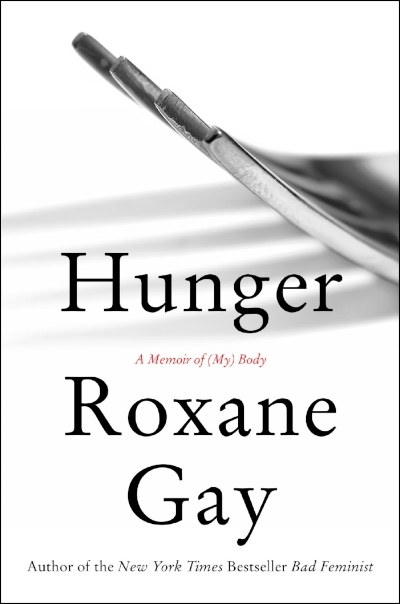"Hunger" by Roxane Gay - Review
I heard of "Hunger," by Roxane Gay because I saw someone that I work with post about how great she thought the book was on Instagram. It's not the typical book I would have chosen, but I was looking for materials to assist in the demographic and brand research for one of the companies I do copywriting for, and this fit the bill. So when I was state-side I went to Barnes & Noble, and purchased it. Many of my thoughts about this book cannot be addressed without discussing the plot. It certainly won't ruin the experience of reading it yourself if you know the plot prior, but in case you want to be totally surprised - stop reading this post now! :)
"Hunger" was the kind of book where after you read it, you're like, omgsh, I need to talk to someone. Before I get into the grit of this post, I want to acknowledge how brave I think Roxane Gay was to bare her soul so vulnerably. Truly. It takes tremendous guts to share such personal experiences and address the challenging topics she did so in her book. Equally as impressive was the manner through which she did. She is a brilliant writer.
The plot (again, STOP reading if you want to be totally surprised): Roxane led a fairly normal and happy life until she was 12. One day the boy she had a crush on led her into the woods, where they met up with his friends. They proceeded to gang rape her. She kept this trauma as a secret for a very long time. Her way of coping was eating. She wanted to make herself as undesirable as possible, so that she could feel safe. “I ate and ate and ate in the hopes that if I made myself big, my body would be safe. I buried the girl I had been because she ran into all kinds of trouble. I tried to erase every memory of her, but she is still there, somewhere. . . . I was trapped in my body, one I made but barely recognized or understood but of my own making. I was miserable, but I was safe.” She ended up at 6'3 and at her heaviest was 577 pounds. She goes into great detail about her life at such a large size.
There is so much of me that feels so sympathetic towards her. No person should ever be disrespected and violated in that manner, certainly not a child. It was heartbreaking to think a little girl was holding this secret in for years because of the shame and guilt.
One of the most thought-provoking concepts Gay addresses was being labeled as "victim" versus "survivor." Gay prefers to use "victim," as a way to not lessen the severity of the trauma she experienced. Given how cavalier rape culture has become, I think she's made a strategically bold decision. This ideology had never crossed my mind before reading this book. With my two-time bout with cancer, I always took claim to the "survivor" label, and I do intend to keep it. I simply feel more empowered with that terminology. But I think every individual has the right to choose with term they identify with, and every scenario is unique.
"Hunger" also made me feel like I needed to take pauses and be more compassionate for other people. Generally, I feel as though I do a fairly good job at doing so, but this was a powerful reminder that people may appear one way on the outside, and be suffering on the inside. Gay gave several day-to-day struggles that obese people face. I was particularly bothered by the fact that there are doctors' offices that do not have proper equipment for obese people (for example, scales that don't support an obese person's weight). If there is ONE place that should be set up for all shapes and sizes, it's the doctors' office.
This book was such a battle between Roxane and her body, and it reinforced the fact that our (American) culture is obsessed with weight, especially females. What we say shows it, what we eat (or not eat) shows it, what we wear shows it, advertisements show it... good grief, I could go on and on with so many more examples. But the discussion around weight is rampant. Although it is completely unrealistic, what if those conversations were all flipped into dialogue discussing happiness, health, and contribution to the world? It would certainly be a different world, and perhaps could even lead to a decreased obesity epidemic.
Gay's book was a sharp reminder that weight-centric issues that most people have often have nothing to do with weight. Generally, it's a symptom of a bigger battle, a battle that is often internalized and private, that the outward world knows nothing about. If nothing else, I think everyone can afford to exude a bit more compassion, myself included.
Overall, I'd give this book 4.5/5 stars.

